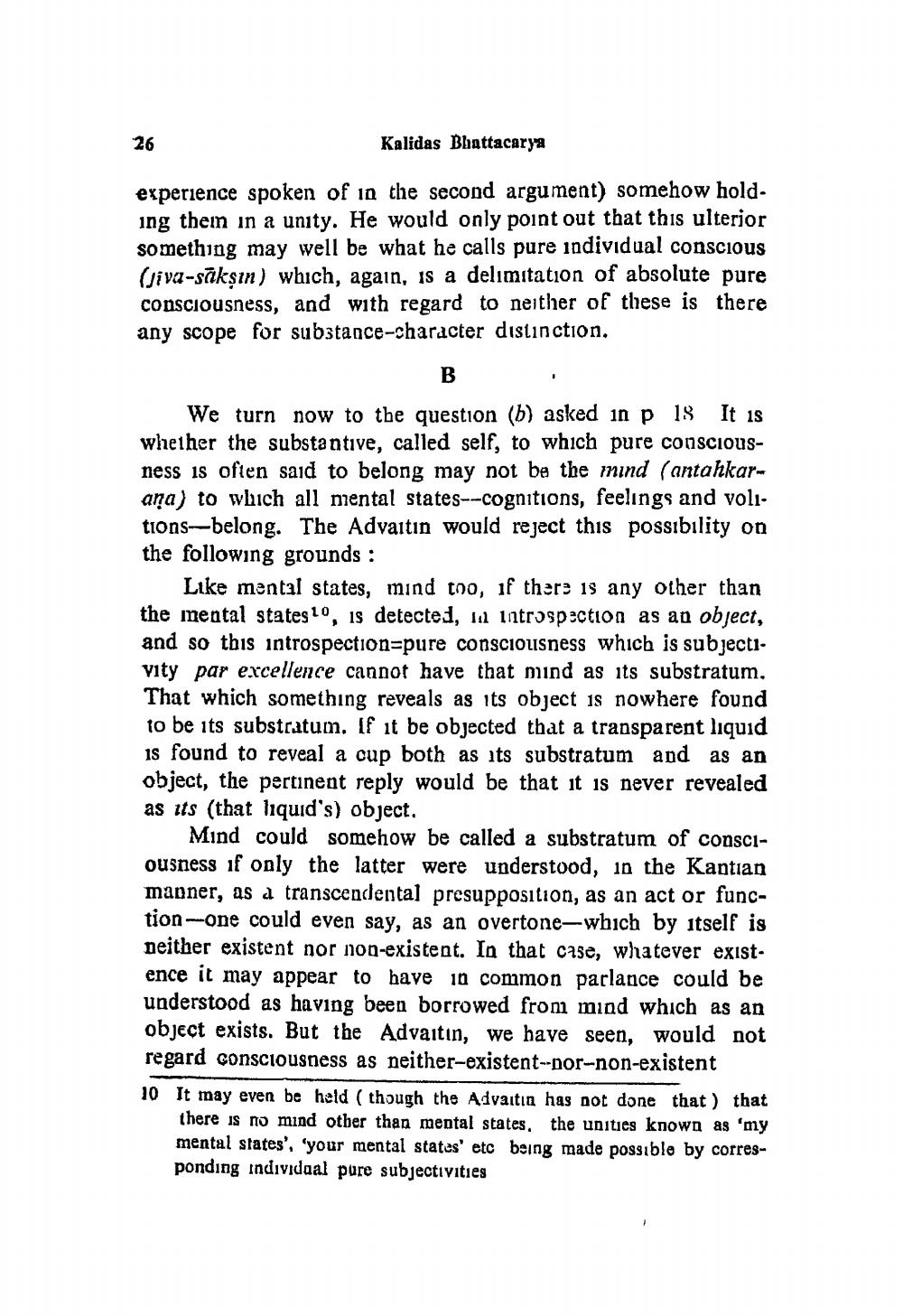________________
26
Kalidas Blattacarya
experience spoken of in the second argument) somehow holding them in a unity. He would only point out that this ulterior something may well be what he calls pure individual conscious Giva-sāksin) which, again, is a delimitation of absolute pure consciousness, and with regard to neither of these is there any scope for substance-character distinction.
B
We turn now to the question (b) asked in p 18 It is whether the substantive, called self, to which pure consciousness is often said to belong may not be the inind (antahkar. ana) to which all mental states---cognitions, feelings and volitions--belong. The Advaitin would reject this possibility on the following grounds :
Like mental states, mind too, if there is any other than the mental states 10, is detected, in introspection as an object, and so this introspection=pure consciousness which is subjectivity par excellence cannot have that mind as its substratum. That which something reveals as its object is nowhere found to be its substratum. If it be objected that a transparent liquid is found to reveal a cup both as its substratum and as an object, the pertinent reply would be that it is never revealed as its (that liquid's) object.
Mind could somehow be called a substratum of consciousness if only the latter were understood, in the Kantian mapner, as a transcendental presupposition, as an act or function--one could even say, as an overtone-which by itself is neither existent nor non-existent. In that case, whatever existence it may appear to have common parlance could be understood as having been borrowed from mind which as an object exists. But the Advaitın, we have seen, would not regard consciousness as neither-existent--nor-non-existent
10 It may even be held ( though the Advaitin has not done that ) that
there is no mind otber than mental states, the unities known as 'my mental states', 'your mental states' etc being made possible by corresponding individual pure subjectivities




